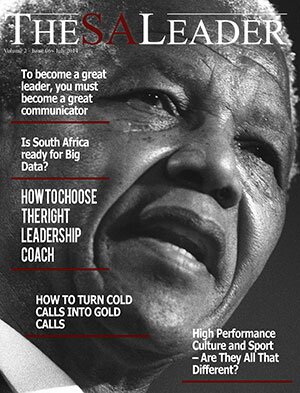This is the view of Dr Douglas Board, advisor on board services to Amrop Landelahni. “During the financial crisis, non-executive directors were, collectively, a watchdog that did not bark – or bark loud enough,” he says. “Non-executive directors have a particular role to play, bringing independence of judgment and a challenging mindset to their role.
“Every significant report into the financial crisis demands more effective stewardship of banks and other financial institutions by their boards. They recommend more effective scrutiny and challenge of executives by non-executive directors. And they reiterate that it is up to board directors to ensure corporate accountability, transparency and integrity.”
Thousands of pages have already explored these issues in detail: can there be anything new to say? “Yes,” says Dr Board, “but we must start looking in a different place.
“The presumption in the management world is that when points of difference arise, they should be considered objectively and everyone should work together in a non-partisan way to deliver the chosen outcome.
In some 90% of books and articles in any business library – or in the programmes offered by business schools – power and politics are absent. “Political skill is not discussed, or it is treated as undesirable.
“Business schools try to be scientific but routinely ignore understandings of power developed in philosophy, sociology, literature or political theory. ‘Science-only’ accounts of power have important gaps, neglecting the role of intuition and things that are embarrassing, such as knowing about aspects of other people that they do not want revealed.”
What, tacitly, is being taught?
Dr Board suggests that, in large corporations, while an effective executive will learn a degree of upward and peer challenge, what is mostly taught is that there are lines beyond which executives should not go in challenging superiors and peers, if they wish to progress their careers.
His research – applying insights from sociology to management – suggests that all human interaction involves the continual jostling and contestation of broad impulses: the three elements of science, politics and intuition.
“Science,” he says, “means trying to reason objectively, to quantify and to measure, to decide questions by evidence, to try to understand what happens in terms of universal, predictable laws and to try to govern organisations by similar policies.
“Intuition means all we find obvious, which arrives in our mind without our readily being able to explain why. It includes expert judgments born of long experience as well as fleeting impressions and associations, all of which are culturally framed.
“Politics means understanding that we are involved in processes of struggle for limited resources, not simply material or financial, or even power, but struggles for attention, respect – for time and the ability to be listened to carefully in a boardroom discussion, for example.”
Dr Board believes that the science, politics, intuition framework can help avoid blind spots such as the absence of politics in management thinking.
Board directors would do well to ask: “How well is our board addressing the political issues that should engage its attention? How much does the board encourage effective challenging within business units, in the corporate centre, or within the board itself?
“Only when they confront these questions will boards be able to develop the skills needed for more effective challenge.
“Discussion of the political issues has been avoided or highly sanitised and simplified. But people who operate successfully at the top level have learned political skills somehow. The reality of senior organisational and board work is and always has been highly political. Understanding this is critical in the post-crisis debate about the role of directors.
“Firstly, if power and politics remains mostly off the boardroom’s formal agenda and training, where would the skills needed for more effective challenge in the boardroom come from? Where will the dog practise barking?
“Secondly, boards need effective mechanisms for identifying what kind of challenging discussion is going on at different levels in the business, including in the board itself, supported by mentoring or coaching processes that draw out effective performance in all three of the scientific, intuitive and political dimensions.”
Note
Dr Douglas Board is an advisor on pan-African board services to Amrop Landelahni. He is a senior visiting fellow at Cass Business School in the UK, has 18 years’ experience in executive search and is author of the books ‘Choosing Leaders and Choosing to Lead’ (Gower 2012) and ‘The Social Development of Leadership and Knowledge’ (with Rob Warwick, Palgrave Macmillan 2013).
















